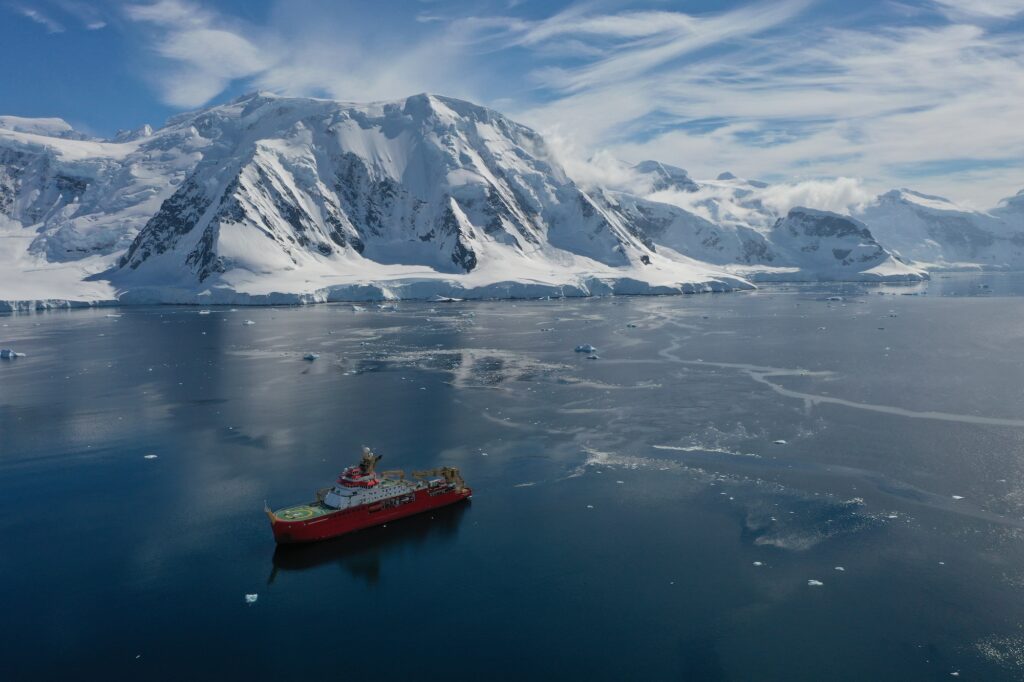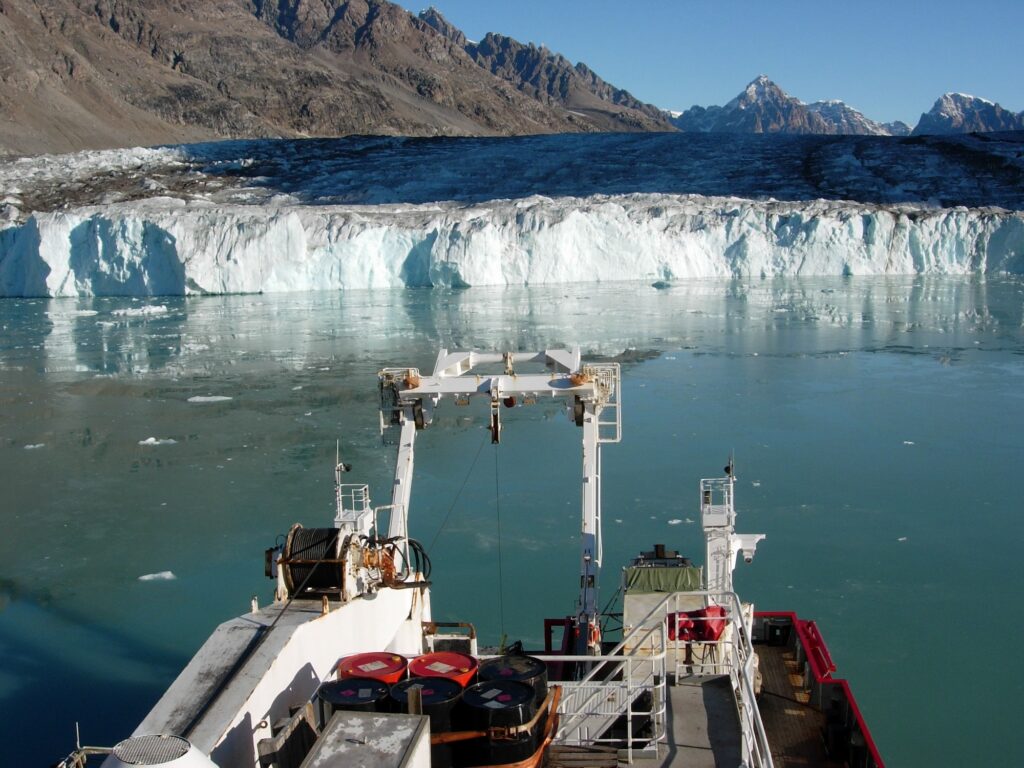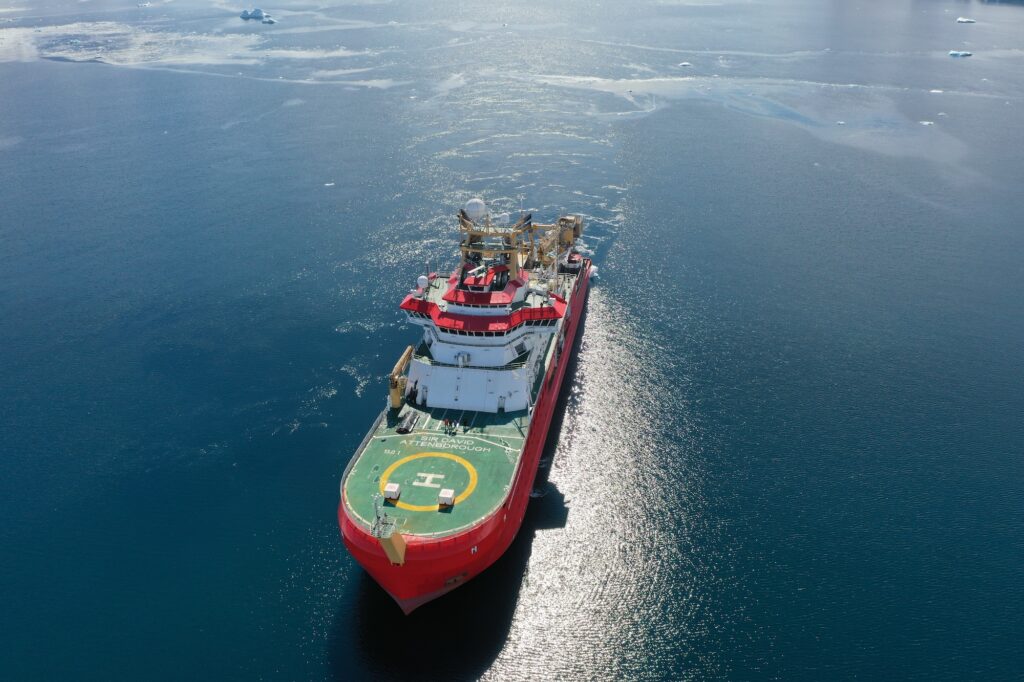
Geographers at Durham University will set sail tomorrow (July 19) on a mission to investigate Greenland’s rapidly decaying ice sheet and its impacts on ocean and global climate systems.
The team on board the UK’s polar research vessel the RRS Sir David Attenborough will study Greenland’s glaciers and life in coastal waters around the edge of the world’s largest island.
The Greenland Ice Sheet is decaying at an accelerating rate in response to climate change. Warm Atlantic waters moving through fjords eventually meet the ice fronts of marine-terminating glaciers, increasing melting and causing icebergs to break off.
In turn, the injection of increased fresh meltwater into the ocean is altering both ocean currents and marine ecosystems around Greenland and farther afield in the North Atlantic, with potential effects on UK weather systems.
The voyage is part of the KANG-GLAC three-and-a-half year research project focused on understanding the long-term impacts of climate change on the Greenland Ice Sheet and its broader implications on ocean circulation and marine ecosystems.
The team aims to determine the intricate processes driving change by studying what is happening now and during warm climatic periods in the past.
Researchers can help anticipate future ice-ocean-marine ecosystem changes by extending the modern observational record back through the last 11,700 years, a period known as the Holocene.

Dr Kelly Hogan, a marine geophysicist from British Antarctic Survey and Co-lead on the project, said: “Our expedition is extremely timely as we are seeing every day in the news how the Arctic is changing, and we know there will be knock-on effects for the rest of the planet.
“We need to understand how the Greenland Ice Sheet is likely to decay over the coming decades to centuries, and what the subsequent effects will be on both ocean currents and marine food webs. This is now urgent information for us to gather so policymakers can understand what will happen in the North Atlantic and set out appropriate adaptation and mitigation plans.”
Professor Colm O’Cofaigh, a glacial and marine geologist from the Department of Geography, Durham University, and project co-Lead said: “Understanding the Holocene record of Greenland Ice Sheet change and the role of the ocean is crucial for placing current observations of ice and ocean change into their longer-term context and for underpinning predictions of future change.
“The range of tools to be deployed from the RRS Sir David Attenborough provides an unprecedented opportunity to assess this change over the last 11,700 years.”












